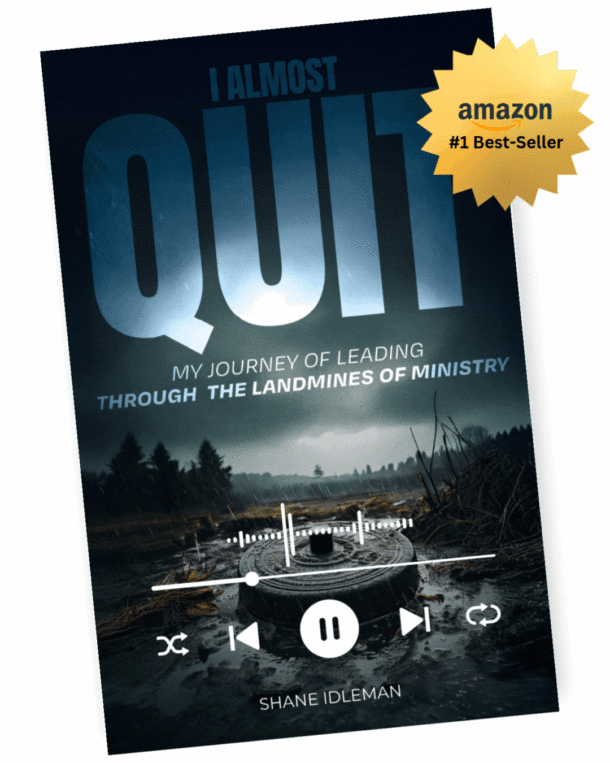Part one in a series on holiness
In the words of the famous hymn writer Isaac Watts, “True Christianity, where it reigns in the heart, will make itself appear in the purity of life.”
Of all the attributes of God described in the Bible, holiness is seen most often. Men fell down in the holy presence of God. Leaders, priests, and kings all trembled at the sheer magnitude of His holiness. The angels cry, “Holy, Holy, Holy is our God.”
Holiness is the key to truly understanding God. Sadly, many have intellectual knowledge of God but few have heart knowledge: “Blessed are those who hunger and thirst for righteousness, for they shall be filled” (Matthew 5:6). There must be a hunger and a thirst for holiness. A quick mental run through of our media choices, checkbooks, and calendars reveal if we are truly seeking hard after God. James 1:27 says that we are to remain “unspotted” from the world—to be free from the world’s corruption. We should continually ask, “Are we ‘affecting’ the world, or is the world ‘infecting’ us?”
The Eerdman’s Dictionary of the Bible defines holiness: “The root idea of holiness is that of ‘separation’ or ‘withdrawal’. It is a divine quality, part of the intrinsic nature of God, but absent from a fallen world. The basic theological problem is that this holy God desires to have fellowship with sinful humans living in a fallen world. Since God cannot become less holy in order to fellowship with humans, they must become more holy (sanctified); once gained, holiness may be lessened or contaminated by…feeling, thinking, or acting in ways that God has forbidden (sinfulness).”
Holiness is not simply knowing about God—knowledge and holiness do not necessarily go hand-in-hand. One can have knowledge of sin but not be repentant.
Second, holiness does not mean that we never sin. Those who seek holiness realize just how sinful they actually are. The closer we draw to God the clearer the picture of sin becomes.
Third, holiness does not lead to the forgiveness of sin. God declares the believer righteous (holy) because of Christ’s sacrifice on the cross. Christ plus something equals salvation is not biblical. We are declared right before God when we put our trust in Christ, not in our “good” works. In passages where Jesus referred to helping those in need, following Him unconditionally, and dying to self, He was not saying that we are saved because we do these things, but rather, we do these things because we are saved.
Finally, holiness is not as much about “what” I don’t do as it is about “why” I don’t do something. It’s safe to assume that those who live strictly by rules rather than a true relationship with Christ are not holy…they are religious. They may avoid people, places, and things but still be critical, judgmental, jealous, arrogant, and angry—“having a form of godliness.” Holiness involves truly seeking God verses “playing church.”
Now with that said, holiness may appear as if one is following rules: avoiding people, places, and things that hinder growth, but this avoidance is fueled a relationship with God rather than rules.
This is why sin is serious: it separates us from God; it stands in direct opposition to Him. It corrupts our character and our testimony; it prevents holiness and quenches and grieves the Spirit within. J.C. Ryle in his book on holiness said that we must stand guard as a soldier on enemy ground. The problem is that many love the world and have a hard time separating. They believe in heaven, but they don’t truly long for it. They “say” that they fear God but they don’t live like it. They indulge temptation rather than fight it. They enjoy sin rather than confront it. And they compromise rather than conquer. The lukewarm church disdains the heat of conviction. Holiness, to them, is outdated…old-fashioned.
Make no mistake, holiness will cost something. Ryle continues with these words about making holiness a priority, “He must count it no strange thing to be mocked, ridiculed, slandered, persecuted, and even hated. He must not be surprised to find his opinions and practices in religion despised and held up to scorn. He must submit to be thought by many a fool, an enthusiast, and a fanatic…to have his words perverted and his actions misrepresented.” In short, we are to do what is right, not what is popular…pleasing God rather than man.
Let me leave you with this thought: Are you willing to do what it takes to protect your relationship with the Lord? Drawing a line can be out of step with the mainstream, but, like Joshua, we too must say: Choose this day whom you will serve, as for me and my house we will serve the Lord (Joshua 24:15).

